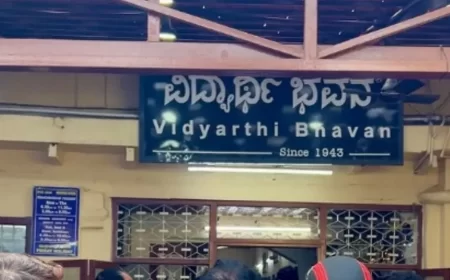Online Food Delivery Scam Costs Bengaluru Resident Rs. 25,000: Learn How to Maintain Online Vigilance.
A Bengaluru resident fell victim to a meal delivery app scam, losing 25,000 rupees. Protect yourself from online fraud as it could also target you.

Online frauds have increased recently in India, leaving many unwitting people with money losses. Likes on YouTube videos, Telegram tasks, and false work-from-home job offers are examples of common frauds. Now, a fresh fraud has surfaced that targets those who routinely use delivery apps to get meals.
An upsetting situation from Bengaluru is highlighted by a recent occurrence covered by One View News. On August 6, Shilpa Sarnobat, a 64-year-old resident of Nagawara, placed an order for meals using a delivery app. She decided to cancel her order shortly after ordering it. The app, however, charged a fee for cancellations. On August 8, Sarnobat got a call from an unidentified number. The caller offered to reimburse her cancellation charge and identified themselves as a customer service representative from the meal delivery app.
Sarnobat obeyed their orders since he believed the caller to be who they claimed to be. According to the caller’s instructions, she downloaded an app and provided her bank information. A short while afterwards, $25,000 disappeared from her bank account. When she became aware of the trick, she tried to get in touch with the caller but got no answer. She ultimately informed the local police about the incident.
Take into account the following safety measures to protect yourself against internet scams:
- Use trusted programs like “Fraud Alert” by CERT-In, “mSafe” by NCSAP, and Google’s “Anti-Phishing App” to protect yourself from con artists. These applications provide real-time notifications, security guidance, and phishing assault defense.
- Keep Personal Information to a Minimum: Use discretion while disclosing Personal Information online. Don’t give out private information to unknown parties, such as phone numbers, email addresses, and bank account numbers.
- Unsolicited Requests for Questions: Be wary of emails and texts asking for personal information. Such strategies are frequently employed by scammers to steal private data.
- Source Verified programs: Only download programs from reputable websites, such as legitimate app shops. Avoid downloading from unofficial websites.
Also Read: India Ranks Among Top Five Nations Battling cyber Attacks
What's Your Reaction?
 Like
0
Like
0
 Dislike
0
Dislike
0
 Love
0
Love
0
 Funny
0
Funny
0
 Angry
0
Angry
0
 Sad
0
Sad
0
 Wow
0
Wow
0






































































































